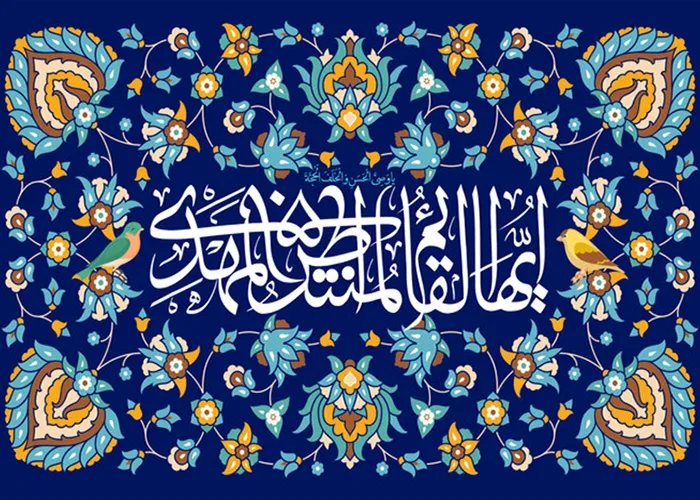Editorial – volume02 Issue07
The Responsibility of the Awaited: Honouring Our Heritage and Embracing Justice
Introduction
In this week’s editorial note of the Friday Bulletin, we specially reflect on two significant occasions: the birth anniversary of Imam Mahdi (AJ) and the International Day of the Oppressed, as well as the demise of the great Islamic scholars, Ayatollah Mulla Mahdi Naraqi & Ayatollah Hasan Ali Isfahani (Nukhudaki). These events provide us with an opportunity to revisit our responsibilities as Muslims living in the West, particularly in a world filled with injustice and moral confusion. By understanding their significance through the lens of Islam, we can equip ourselves to make ethical decisions and guide our communities toward a more just and principled way of life.
The Birth of Imam Mahdi (AJ) and the International Day of the Oppressed
The 15th of Sha’ban marks the birth of Imam Mahdi (AJ), the awaited saviour in Islamic eschatology, whose mission is to establish justice and eradicate oppression. His emergence signifies a divine promise that the oppressed will ultimately inherit the earth:
وَنُرِيدُ أَنْ نَمُنَّ عَلَى الَّذِينَ اسْتُضْعِفُوا فِي الْأَرْضِ وَنَجْعَلَهُمْ أَئِمَّةً وَنَجْعَلَهُمُ الْوَارِثِينَ
“And We desired to show favour to those who were oppressed in the land, and to make them leaders and to make them heirs.” (Surah Al-Qasas 28:5)
The alignment of this occasion with the International Day of the Oppressed is deeply symbolic. It reminds us that awaiting Imam Mahdi (AJ) is not a passive act but an active commitment to fighting injustice in all forms. As Muslims, we must stand against oppression, whether it be social, economic, or political, in our societies and beyond. We discussed thus beautiful verse of Quran in the Ayah of the Week section of this issue.
Message for Muslims in the West: In an era of increasing discrimination, economic disparity, social challenges and injustice, Muslims must embody the principles of justice and advocacy for the oppressed. It is our duty to support humanitarian causes, speak out against injustice, and cultivate a community that reflects the values of fairness and equity.
Practical Challenge: Identify a local social justice issue—be it homelessness, discrimination, or poverty—and take an active step toward addressing it. This could be through volunteering, raising awareness, or supporting relevant organisations.
The Legacy of Ayatollah Mulla Mahdi Naraqi & Ayatollah Hasan Ali Isfahani (Nukhudaki)
Ayatollah Mulla Mahdi Naraqi was a distinguished Islamic scholar and moral philosopher whose works continue to shape Islamic thought. His teachings on ethics and self-purification highlight the necessity of moral refinement for both individuals and society. He famously stated that true knowledge is not merely intellectual but must be reflected in one’s character and actions.
Ayatollah Hasan Ali Isfahani (Nukhudaki) was a revered scholar, mystic, and ascetic who dedicated his life to spiritual purification and Islamic sciences. Residing in Mashhad, he was known for his deep piety and commitment to guiding others on the path of self-discipline and worship. He emphasised that true spiritual progress requires sincerity, devotion, and adherence to Islamic principles in both knowledge and practice. His legacy continues to inspire those seeking a balance between scholarly pursuits and inner refinement.
The Quran emphasises the importance of purifying oneself:
قَدْ أَفْلَحَ مَنْ زَكَّاهَا
“He indeed succeeds who purifies his soul.” (Surah Al-Shams 91:9)
Their works serve as a guide for Muslims, particularly those in leadership positions, reminding them of the need to balance knowledge with righteous action.
Message for Muslims in the West: In an age where ethical dilemmas are rampant, it is essential for Muslims—especially community leaders—to engage in continuous self-improvement. Education should not be limited to acquiring knowledge but should translate into moral and ethical development.
Practical Challenge: Dedicate time each week to self-reflection and self-improvement. Read a book or listen to a lecture on Islamic ethics and apply one key lesson to your daily life.
Last words
The occasions we commemorate this week offer profound lessons for us as Muslims living in the West. Whether it is through striving for justice in anticipation of Imam Mahdi (AJ) or through self-purification in the legacy of Ayatollah Naraqi and Ayatollah Nukhudaki and other outstanding Islamic scholars, we are reminded of our duty to be proactive members of society. By embodying these values in our lives, we do not just honour our faith; we also become beacons of guidance and positive change in our communities.
editor's pick
news via inbox
Subscribe to the newsletter.




